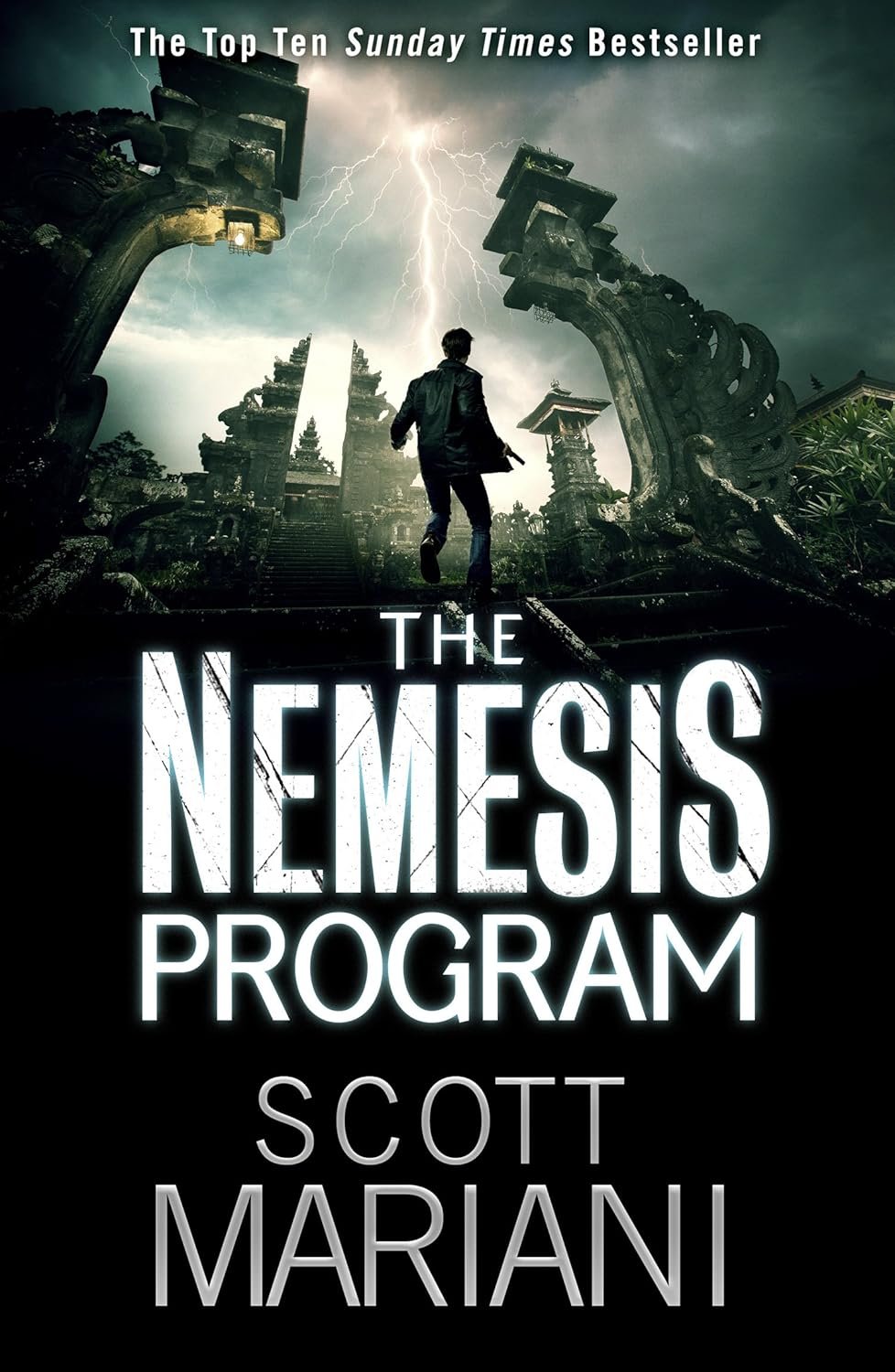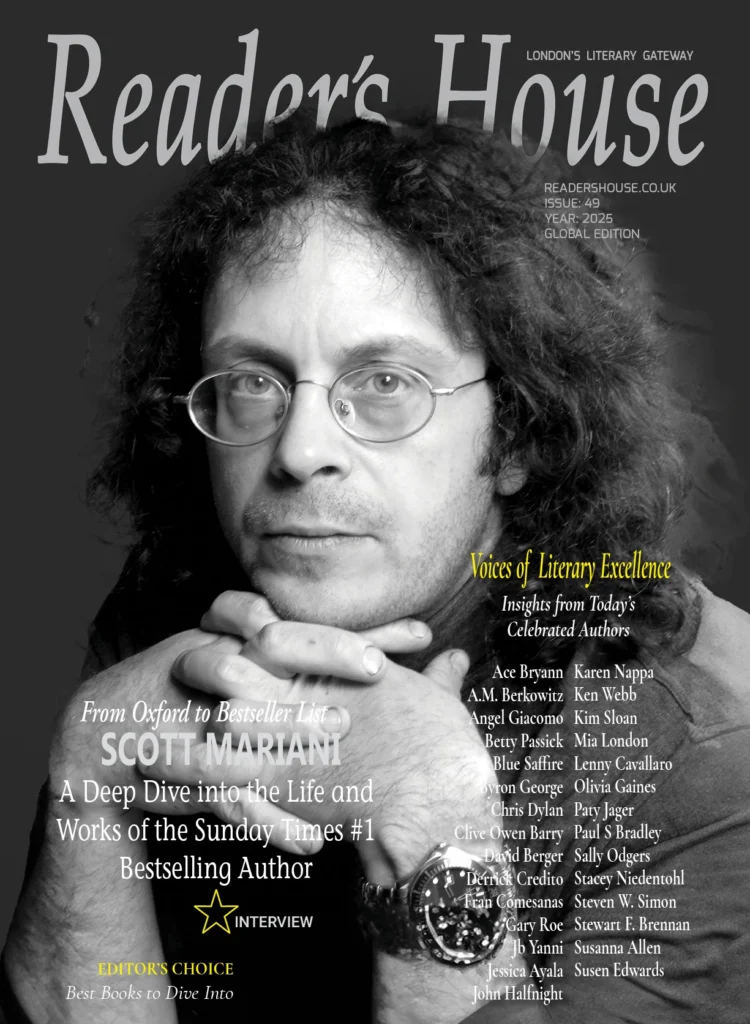A Deep Dive into the Life and Works of the Bestselling Thriller Author
Scott Mariani discusses his bestselling Ben Hope series, blending historical mysteries with modern thrillers, his writing process, and the diverse experiences that shaped his storytelling.
Scott Mariani, the acclaimed author behind the bestselling Ben Hope series, has captivated readers worldwide with his unique blend of modern thriller action and historical mystery. His novels, featuring the relentless ex-SAS hero Ben Hope, have not only topped the charts in the UK but have also been translated into 25 languages, reaching a global audience. Mariani’s journey to literary success is as compelling as his books. Born in Scotland and educated at Oxford, he initially pursued a variety of careers, from teaching to running a burger bar, before dedicating himself to writing. It was in the serene landscapes of rural west Wales that the character of Ben Hope was conceived, leading to the creation of The Alchemist’s Secret, which spent six weeks at number one and launched a series that shows no signs of slowing down.
In this exclusive interview for Reader’s House, Scott Mariani delves into the inspirations and processes behind his gripping novels. He shares his lifelong passion for history, which enriches the historical elements in his thrillers, and discusses the meticulous research that brings authenticity to his stories. Mariani also reflects on the development of Ben Hope, a character whose background as an ex-SAS soldier and a rescuer of kidnapped children adds depth and complexity to his adventures. From the ancient mysteries of China in The Golden Library to the high-stakes conspiracies that keep readers on the edge of their seats, Mariani’s storytelling prowess is evident. Join us as we explore the mind of a master thriller writer and uncover the secrets behind the success of the Ben Hope series.
The Ben Hope series masterfully blends modern thriller elements with historical mysteries. What draws you to incorporate historical elements into your contemporary thrillers, and how do you research these historical aspects?
I’ve always had a deep interest in history, from childhood. When all the other kids were out kicking footballs around, I was the one in his room reading about the crusades or the Napoleonic wars, or any of the other areas for which I had a romantic fascination, and still do. Later, I studied medieval literature as part of my degree at Oxford, and that passion for history was still with me by the time the first Ben Hope novel was born. Having incorporated a historical background mystery to that one, it seemed a natural progression to continue the same trend with subsequent books. It’s allowed me to explore all kinds of different areas of history. The research process is no different from any other historical research, using whatever resources are available. Though I’ve always preferred not to use the internet too much, and rely instead on books.
In The Golden Library, Ben Hope finds himself in China, uncovering secrets related to the Terracotta Army. What inspired you to set this adventure in China, and how did you approach writing about such a unique and historical setting?
Ancient China is one of my particular areas of historical interest. I’ve studied Tai Chi sword fighting, spent some time in Taiwan, and am also fascinated by Chinese medicine. This story – Book 29 in the series – was a slight departure from Ben Hope’s usually more European settings; he’d never been to China before and it was an interesting journey for both of us! Thanks to my pre-existing curiosity about the subject I was fortunate to have done a lot of reading in the past. I also went back to my Tai Chi sword master for some of the specialist Chinese martial arts stuff in the novel. A more contemporary theme of the story is the terrible plight of the Falun Gong practitioners, heavily persecuted in modern-day China.
The Alchemist’s Secret introduced Ben Hope and became an instant bestseller. Can you talk about the development of Ben Hope as a character and how his background as an ex-SAS soldier influences his actions and decisions throughout the series?
It’s funny to think of it as an instant bestseller. Thanks to the awful literary agent I had then, the novel almost ended its life as a small-run library-only book. It took a lot of blood, sweat and tears to overcome that very difficult start, and I’m very proud of the success it’s had. As for Ben himself, there are lots of ex-SAS heroes out there in the thriller fiction world, and from the start I was determined that mine would have to be a little different. For example, one feature of Ben Hope is his background in theology. But of course it was his prowess as a modern-day warrior that enabled him, after quitting the military, to start a new career as a rescuer of kidnapped children. That’s what kicked off the whole sequence of the series.
Your novels often feature high-stakes scenarios and complex conspiracies. How do you craft these intricate plots while maintaining a balance between action, suspense, and character development?
It’s really a very organic process for me. Behind the various intrigues Ben Hope gets drawn into is the running theme of his own personal journey as he goes through life. The interesting challenge, as a storyteller, was always how to integrate the two: how does Ben get involved, what are the personal stakes for him? Over a thirty-book series it’s vital not to become repetitive and to keep things fresh and varied. I think I’ve succeeded reasonably well at it. Then once you have the basic set-up of the story, the action and suspense stuff grows naturally out of the structure. There’s always someone trying to prevent Ben Hope from coming out on top . . . but we know who invariably does!
Before becoming a full-time writer, you held various jobs, including teaching and running a burger bar. How have your diverse life experiences influenced your writing, and do any particular experiences stand out as having shaped your approach to storytelling?
Maybe some authors utilise their specific life experiences more than others. Personally, I don’t think that my previous incarnations really had much direct bearing on the books, certainly not in any autobiographical way. But all writers necessarily draw on what’s inside them, and my general areas of experience such as music, which was always a big part of my life, are reflected throughout the series and especially in books like The Mozart Conspiracy and The Bach Manuscript. And of course, there was always that dominant interest in history, going back to my earliest years. I suppose I haven’t changed much since then!
EDITOR’S CHOICE
The Nemesis Program delivers relentless action, intricate conspiracy, captivating characters, and edge-of-your-seat suspense. A must-read thriller masterpiece!

SCOTT MARIANI
Weaving Worlds of Romance and Mystery
We are thrilled to announce that the upcoming issue (49) of Reader’s House Magazine will feature the esteemed Author Scott Mariani on our cover. As a Sunday Times Bestselling Author, Mariani has captivated readers worldwide with his unique blend of modern thriller action and historical mystery, making him a perfect choice for our cover story.
Scott Mariani, the brilliant mind behind the bestselling Ben Hope series, has carved a niche in the literary world with his gripping narratives and complex characters. His novels, featuring the relentless ex-SAS hero Ben Hope, have not only topped the charts in the UK but have also been translated into 25 languages, reaching a global audience. Mariani’s journey to literary success is as compelling as his books. Born in Scotland and educated at Oxford, he initially pursued a variety of careers, from teaching to running a burger bar, before dedicating himself to writing. It was in the serene landscapes of rural west Wales that the character of Ben Hope was conceived, leading to the creation of “The Alchemist’s Secret,” which spent six weeks at number one and launched a series that shows no signs of slowing down.
In this exclusive interview for Reader’s House Magazine, Scott Mariani delves into the inspirations and processes behind his thrilling novels. He shares his lifelong passion for history, which enriches the historical elements in his thrillers, and discusses the meticulous research that brings authenticity to his stories. Mariani also reflects on the development of Ben Hope, a character whose background as an ex-SAS soldier and a rescuer of kidnapped children adds depth and complexity to his adventures. From the ancient mysteries of China in “The Golden Library” to the high-stakes conspiracies that keep readers on the edge of their seats, Mariani’s storytelling prowess is evident.
Join us as we explore the mind of a master thriller writer and uncover the secrets behind the success of the Ben Hope series. In this issue, Mariani discusses his deep interest in history, which has been a driving force behind his novels. He reveals how his childhood fascination with historical events and his academic background in medieval literature have shaped his writing. Mariani also shares insights into his research process, preferring traditional methods over the internet to ensure the authenticity of the historical elements in his books.
In “The Golden Library,” Ben Hope finds himself in China, uncovering secrets related to the Terracotta Army. Mariani’s personal interest in ancient China, Tai Chi sword fighting, and Chinese medicine adds a unique flavor to this adventure. He also highlights the contemporary theme of the story, addressing the plight of the Falun Gong practitioners in modern-day China.
Mariani’s journey to becoming a bestselling author was not without its challenges. He recounts the difficult start of “The Alchemist’s Secret” and the determination it took to overcome obstacles. The development of Ben Hope as a character, with his unique background in theology and his career as a rescuer of kidnapped children, sets him apart from other ex-SAS heroes in thriller fiction.
Crafting intricate plots with high-stakes scenarios and complex conspiracies is a hallmark of Mariani’s writing. He explains how he balances action, suspense, and character development, ensuring that each story remains fresh and engaging. Mariani’s diverse life experiences, from teaching to running a burger bar, have also influenced his storytelling, adding depth and authenticity to his novels.
We invite you to dive into the world of Scott Mariani and discover the inspirations, challenges, and triumphs behind his bestselling series. This issue promises to be a captivating read for fans of thrillers and historical mysteries alike.



